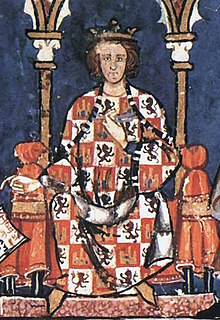A Quote by Stephen Hawking
So long as the universe had a beginning, we could suppose it had a creator. But if the universe is really completely self-contained, having no boundary or edge, it would have neither beginning nor end: it would simply be. What place, then, for a creator?
Related Quotes
One can imagine that God created the universe at literally any time in the past. On the other hand, if the universe is expanding, there may be physical reasons why there had to be a beginning. One could imagine that God created the universe at the instant of the big bang, or even afterwards in just such a way as to make it look as though there had been a big bang, but it would be meaningless to suppose that it was created before the big bang. An expanding universe does not preclude a creator, but it does place limits on when he might have carried out his job!
Of course, Jastrow's comment is exaggerated at best; theologians hardly predicted the Big Bang. If our universe turns out to be closed, hence with an end, this does not mean apocalyptic visions of the end of the world were on target. And even if a beginning for the universe is a successful prediction of one version of theism, this is still not that impressive. After all, even a stopped clock is right twice a day. The Big Bang becomes strong support for God only with an argument showing that such a beginning requires a Creator.
Further, if Spirit has any meaning at all, then it must be eternal, or without beginning or end. If Spirit had a beginning in time, then it would be strictly temporal, it would not be timeless and eternal. And this means, as regards your own awareness, that you cannot become enlightened. You cannot attain enlightenment. If you could attain enlightenment, then that state would have a beginning in time, and so it would not be true enlightenment.
Appealing to his [Einstein's] way of expressing himself in theological terms, I said: If God had wanted to put everything into the universe from the beginning, He would have created a universe without change, without organisms and evolution, and without man and man's experience of change. But he seems to have thought that a live universe with events unexpected even by Himself would be more interesting than a dead one.
Man no longer lives in the beginning--he has lost the beginning. Now he finds he is in the middle, knowing neither the end nor the beginning, and yet knowing that he is in the middle, coming from the beginning and going towards the end. He sees that his life is determined by these two facets, of which he knows only that he does not know them
The optimization of cosmic darkness and of Earth's location within the dark universe that sacrifices neither the material needs of human beings nor their capacity to gain knowledge about the universe reflects masterful engineering at a level far beyond human capability- and even imagination. It testifies of a supernatural, superintelligent, superpowerful, fully deliberate Creator.
Had I been present at the Creation, I would have given some useful hints for the better ordering of the universe. Remarking on the complexity of Ptolemaic model of the universe after it was explained to him. Footnote: Carlyle says, in his History of Frederick the Great, book ii. chap. vii. that this saying of Alphonso about Ptolemy's astronomy, 'that it seemed a crank machine; that it was pity the Creator had not taken advice,' is still remembered by mankind, - this and no other of his many sayings.


































